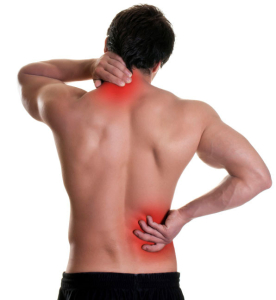 Human movement is a combination of well orchestrated systems. When these systems are damaged in any way or don’t fully interact with each other, dysfunction or pain can occur. In a health club setting, this can be due to to poor lifting or running technique, inappropriate exercise selection or not progressing at the right pace for you. If you also consider that 90% of new gym users get injured in the first 6-8 weeks of starting an exercise plan, then its unsurprising for example, that four out of five people experience back pain during their lifetime.
Human movement is a combination of well orchestrated systems. When these systems are damaged in any way or don’t fully interact with each other, dysfunction or pain can occur. In a health club setting, this can be due to to poor lifting or running technique, inappropriate exercise selection or not progressing at the right pace for you. If you also consider that 90% of new gym users get injured in the first 6-8 weeks of starting an exercise plan, then its unsurprising for example, that four out of five people experience back pain during their lifetime.
The causes of musculoskeletal pain can be varied. These include: poor posture, wear and tear, accidental injury or sporting impact injuries. Once an injury has occurred and medical treatment has been received many people still fail to return to a pain free state and restore full physical function.
Personalised Programme To Eliminate Your Pain
The path of pain is rarely a straight and narrow course. When most people seek out treatment for chronic pain, they often look at the immediate “source” of their pain: the knee, the back, or whatever is hurting. That one part is the focus of their treatment, and nothing else is really looked at. What most people don’t realise however, is that pain very often is the result of stress from a completely different source.
In many cases, the pain you’re experiencing now is often the result of a series of small events that, when looked at as a whole, leads to the real reason you’re experiencing pain. Muscle imbalance and movement issues are often the root cause of chronic pain.
Therefore a more sensible plan is to attack the root cause of your pain rather than just treating symptoms. Corrective exercise which is often recognised as falling somewhere in between personal training and rehabilitation therapy, focuses on the underlying cause of your pain, not just on ways to mask your pain, as eliminating the cause is the best way to eliminate the pain.
The addressing of muscle imbalances, weakness, tightness or motor programme issues, help the body to function at its optimal level and reduce stress on joints and muscles.
 Corrective exercise is based on the simple fact that each muscle is connected to another through the fascial system. By reintroducing proper structure in the body, functionality can improve.
Corrective exercise is based on the simple fact that each muscle is connected to another through the fascial system. By reintroducing proper structure in the body, functionality can improve.
This will ensure that your body moves the way it was designed to: efficiently and effortlessly, and with no undue stress on any one part. This will allow you to live a more productive and comfortable life. And, because corrective exercise focuses on fixing the cause of your pain, instead of just addressing your symptoms, it works where many other remedies fail. So even if you’ve tried everything else, now is not the time to give up.
My methods of corrective exercise will help fix muscular imbalance and movement patterns. By doing this you can start working towards a future without pain and attaining your health and fitness goals.
A comprehensive assessment includes:
- Static postural assessment
- Dynamic postural assessment
- Flexibility assessment
- Manual muscle testing
- Goniometric testing
- Photo and video analysis
- Analysis of exercise movement patterns
- Strength tests
- Structural balance testing
- Thorough health history review
All of these assessments provide a specific individualised programme in order to reduce or remove pain and produce optimal body function.
